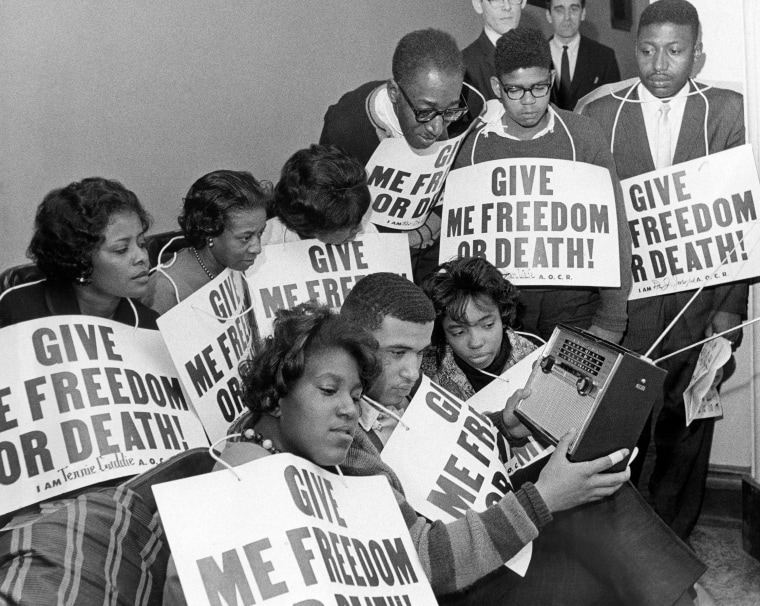Patriotism and Pain: A Black Reflection on July 4th
 Rhode Island Black Heritage Society
Rhode Island Black Heritage SocietyEach year, July 4th is celebrated with fireworks, parades, and lively displays of red, white, and blue. For some, it's a day to celebrate the birth of American liberty. But for others, the day is complicated by mixed emotions. The fourth of July African American experience is rich with both a profound sense of patriotism and a sad realization of the country's unclear history.

Independence for Some, Not All
When the Declaration of Independence was signed in 1776, it stated that "all men are created equal." But millions of Black individuals were enslaved, being treated as property, not as citizens. The founding principles of equality and liberty didn't apply to them. For generations of African Americans, July 4th was a reminder of what freedom meant for others — and what it still didn't mean for them.
That dichotomy has influenced how many in the Black community observe Independence Day. It's not necessarily fireworks and barbecues every time. It's about memory, history, and fighting for actual freedom.
Frederick Douglass and the Power of Words
No Black Fourth of July reflection would be complete without the mention of Frederick Douglass. It was in 1852 that Douglass gave his celebrated speech, "What to the Slave is the Fourth of July?" He recognized white Americans' celebration of freedom while commenting on the continued oppression of Black people.
"To drag a man in chains into the great temple of liberty and call him to share your anthems of joy, is inhuman mockery," Douglass once stated.
They still echo today for many African Americans. The fourth of July African American existence typically involves questioning — not negating — patriotism. It's wondering: Can we honor a nation that didn't always honor us?
Patriotism, Reimagined
Black patriotism tends to be different from the stereotypical images seen in the media. It's the unspoken pride of Black soldiers who died for a nation that didn't even die for them at times. It's civil rights activists marching, rallying, and giving everything to make America live up to its own principles.
It's also about resilience. In spite of hundreds of years of oppression, African Americans have contributed immeasurably to the nation — in art, in science, in politics, and in the struggle for justice. Loving America and also insisting that it do better is another kind of patriotism.
The Role of Juneteenth
While July 4th commemorates America's freedom from British control, Juneteenth (June 19th) celebrates a more individual freedom for African Americans — the freeing of enslaved persons in Texas in 1865. Juneteenth is viewed as a truer celebration of freedom by many Black families.
Nevertheless, others do commemorate both holidays, utilizing the Fourth of July as a space in which to think, learn, and congregate. For some, it is a means by which to celebrate the forebears who fought, labored, and dreamed of a more open future.
Black Joy as Resistance
Fighting on the Fourth of July doesn't necessarily mean forgetting history. In fact, embracing joy and tradition can itself be a revolutionary act. Black families nationwide commemorate the holiday with cookouts, music, and camaraderie — all while recalling the journey that brought them here
This mixing of pride and suffering is specific to the fourth of July African American experience. It indicates a truth that is hard and beautiful: that freedom remains a work in progress.
Telling the Whole Story
America's story of independence is not complete without the voices of African Americans. From Crispus Attucks, a Black man who was murdered in the Boston Massacre and can be regarded as the first casualty of the American Revolution, to Black soldiers in all major wars — their stories need to be in the foreground.
Museums, schools, and cultural centers have a key role to play here. They can assist in preserving and transmitting such accounts, and future generations can learn from them that patriotism does not mean forgetting the past — it means learning from it.
Looking Ahead
While the fireworks illuminate the sky this Fourth of July, let it also be a moment of introspection. Let us remember those who constructed this nation with their blood and toil, even when the promise of freedom did not extend to them. Let us include the whole narrative in our schools, discuss it at our barbecues, and find space for the nuance that comes with loving a nation that has not always loved us in return.
The path to justice is not complete. But by seeing the whole picture — both the pride and the pain — we are closer to a more inclusive, honest patriotism.
And for those looking to delve deeper into this history, meaningful resources and narratives can be accessed through institutions such as the Rhode Island Historical Society.
Subscribe to my newsletter
Read articles from Rhode Island Black Heritage Society directly inside your inbox. Subscribe to the newsletter, and don't miss out.
Written by

Rhode Island Black Heritage Society
Rhode Island Black Heritage Society
The Rhode Island Black Heritage Society is dedicated to preserving and sharing the rich history of Black Rhode Islanders. By collecting books, manuscripts, photographs, and historical artifacts, the society ensures that Black contributions to the state’s culture and progress are never forgotten. Through lectures, publications, and educational programs, it promotes awareness and appreciation of this vital history. By safeguarding these stories, the society not only honors the past but also inspires future generations.